From the Lampert Library
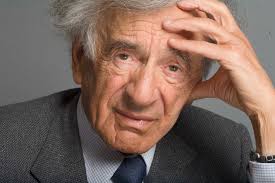 The man’s eyes are piercing and appear to be filled with sadness. His craggy face with its deep furrows carries pain and suffering and the burden of memory.
The man’s eyes are piercing and appear to be filled with sadness. His craggy face with its deep furrows carries pain and suffering and the burden of memory.
Elie Wiesel, survivor of four concentration camps, recipient of scores of honorary degrees, winner of multiple prizes including the Nobel Prize for Peace and the Presidential Medal of Freedom, teacher extraordinaire, husband, father, grandfather, died on Saturday, July 2 at the age of 87.
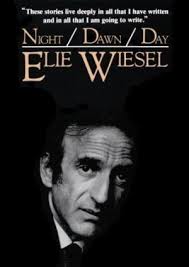 There can be few literate people on this planet who have not heard of Elie Wiesel, author of more than 60 books, including Night which has become essential reading in schools around the world. Wiesel at times seemed to be everywhere: he used his words and prestige as the moral voice of the twentieth century to sue for the rights of Soviet Jewry, to argue for the repatriation of Ethiopian Jews, to decry the treatment of Bosnian Muslims, to excoriate the Rwandan genocide, and more. He tried to “write so that the words become a burning scar.”
There can be few literate people on this planet who have not heard of Elie Wiesel, author of more than 60 books, including Night which has become essential reading in schools around the world. Wiesel at times seemed to be everywhere: he used his words and prestige as the moral voice of the twentieth century to sue for the rights of Soviet Jewry, to argue for the repatriation of Ethiopian Jews, to decry the treatment of Bosnian Muslims, to excoriate the Rwandan genocide, and more. He tried to “write so that the words become a burning scar.”
Multilingual, he was eloquent in every language he spoke or wrote. Wiesel was a communicator, a professor at City College of New York and then, for many years, at Boston University.
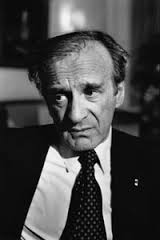 Champion of the persecuted underdog, Wiesel brought the fight against evil down to the personal level. In a talk to a group of Chicago students sponsored by Facing History and Ourselves, Wiesel talks about exploring indifference and that indifference is a bigger threat than hatred. Hatred takes effort: it is an action. More people are indifferent and thus indifference to hatred is more dangerous than active hatred. (https://www.youtube.com/watch?v=lZ-tomShsmc)
Champion of the persecuted underdog, Wiesel brought the fight against evil down to the personal level. In a talk to a group of Chicago students sponsored by Facing History and Ourselves, Wiesel talks about exploring indifference and that indifference is a bigger threat than hatred. Hatred takes effort: it is an action. More people are indifferent and thus indifference to hatred is more dangerous than active hatred. (https://www.youtube.com/watch?v=lZ-tomShsmc)
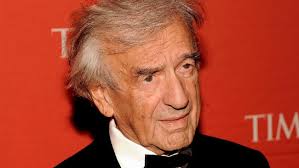 He was lauded in Time Magazine. U.S. News and World Report quoted Wiesel on indifference as follows: The opposite of love is not hate, it’s indifference. The opposite of beauty is not ugliness, it’s indifference. The opposite of faith is not heresy, it’s indifference. And the opposite of life is not death, but indifference between life and death.
He was lauded in Time Magazine. U.S. News and World Report quoted Wiesel on indifference as follows: The opposite of love is not hate, it’s indifference. The opposite of beauty is not ugliness, it’s indifference. The opposite of faith is not heresy, it’s indifference. And the opposite of life is not death, but indifference between life and death.
He took his personal experience and made them universal. He did not dwell on death; he looked to the future to the survivors…to life.
Famous, lauded, and venerated as this man was-the Los Angeles Times called Wiesel the most important Jew in America-, he was known for his accessibility to students. He was not so great that he could not acknowledge and encourage students who sought him out: personally responding to a high school student writing a paper about him; nominating a young author, a former student, for a literary prize.
He talked with celebrities and walked with presidents and sometimes scolded them as he did President Reagan in 1985 when Reagan planned to visit Bitburg Cemetery where many SS soldiers were buried. Said Wiesel, “That place is not your place. Your place is with the victims of the SS.”
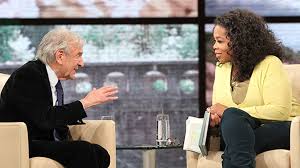 Wiesel could have spent his life after Auschwitz, complaining, moaning, and focusing on his loss. Instead, he concentrated on survival, on life and working to ensure that the horrors that he suffered happened “NEVER AGAIN!”
Wiesel could have spent his life after Auschwitz, complaining, moaning, and focusing on his loss. Instead, he concentrated on survival, on life and working to ensure that the horrors that he suffered happened “NEVER AGAIN!”
The library has a wealth of books by Wiesel and even a few about him. Certainly in the coming months, Wiesel will become the subject of numerous articles, retrospectives and books.
Check the display and the catalog for books by and about Elie Wiesel.
- Is It Passover Yet? - Thu, Apr 18, 2024
- MESH Report April 9, 2024 - Thu, Apr 11, 2024
- Guess Who? - Wed, Mar 13, 2024
